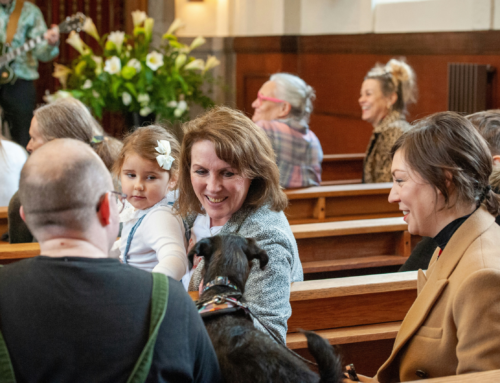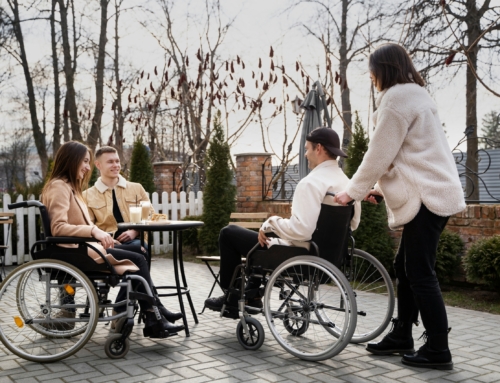We are happy to welcome Krista Ewert to share today’s guest post, originally written for “In the Margins of Grace.” Krista has also written a children’s book titled “This is Ella” which offers a perfect starting point for a conversation with children about difference in general, Down syndrome in particular, and the concepts of inclusion and friendship.
I recently became unemployed and like many, much of my identity has often been wrapped up in my occupation. For years, I have woken up Monday through Friday, gotten the kids off to school and then sat down at my computer to begin my day and change the world. Now, I have to find a new rhythm and a new normal but I have to admit that at times, I feel quite lost.
It made me consider how our residents must feel. You see, the residents who are my neighbours are all refugee claimants. Together, we live at Kinbrace, which provides temporary housing and support to asylum seekers. Many of them are incredibly gifted individuals who have left very good jobs: doctors, engineers, tailors, university professors, farmers, teachers, nurses…the list goes on. And now they are here. Many who come do not speak English and, since language is a measure of intelligence in our society, are looked down upon. Others, who do speak English, wait months for a work permit and then, once they receive it, struggle to find someone who will employ a refugee claimant.
From the time children learn to speak in full sentences, we ask, “What do you want to be when you grow up? A veterinarian, a dog-trainer, a doctor?” I have never heard a child answer, “ I want to be kind and compassionate” and yet, I can’t help but think that we might need more people like that in the world. When a person loses a job or leaves a job, they are forced to face the essence of what it means to be human and ask, is it good enough? Employment has always been a measure of worth and so for those, be it a refugee claimant or a person with an intellectual disability, unemployment, potentially coupled with an inability to communicate well in the English language can be devastating to their sense of worth.
The reality at Kinbrace and for persons with disabilities, is indicative of the fact that in North America, we have an accomplishment-based approach to life instead of a contribution-based approach. Employment serves as validation of our accomplishments and worth as citizens but in reality, accomplishments are only a credit to the individual.
Contributions on the other hand, are for the common good. They are an act of giving in common with others. Contributions are made within a community and are dependent on others to receive. As opposed to an accomplishment-based approach which can be lived independently of others, the contribution-based approach places ourselves in the context of a community. The contributions we make complement another’s contributions – they are not in competition with them and foster interdependence over independence.
The residents at Kinbrace may not work (at the moment), but in this liminal space, they teach me about perseverance and faithfulness, as well as how to cook lots of delicious foods, open my eyes to the persecution that is happening in different parts of the world, and what it means to be a family and care for one another. And for this, I am deeply grateful.

This is my friend Scott. He has been working at Thrifty Foods for 20 years and is a great employee!!
Krista Ewert draws on her experience in communications, community development, and disability advocacy to write stories of faith, community, and belonging at In the Margins of Grace. She lives in Vancouver, BC with her husband and their three children alongside refugee claimants in a sacred space called Kinbrace.



